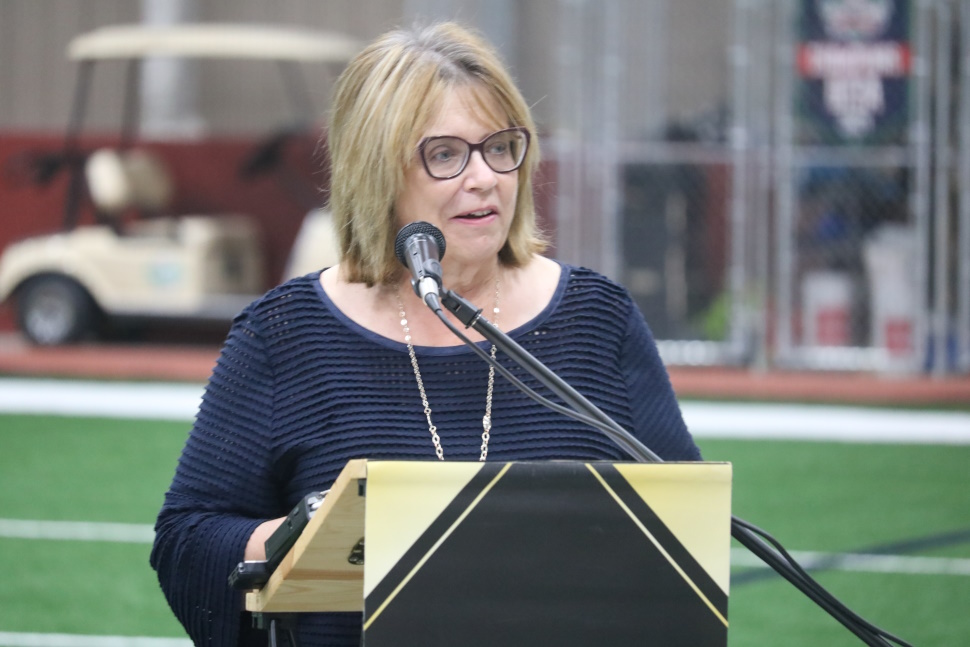Minister of Parks, Culture and Sport Alana Ross was at the Yara Centre on Thursday to remind residents about the province’s Active Families Benefit program.
The Active Families Benefit is an annual refundable provincial tax benefit to help make children’s sports and recreational activities more affordable for families.
“With summer in full swing, families are busy with many different activities, whether it’s swimming lessons, baseball, fitness programs, soccer, flag football, summer camps, it’s very important to know about this program,” Ross said.
Activities eligible for the program include sporting, recreational and cultural activities. The programs must be offered by a service provider in Saskatchewan, instructed and supervised by the service provider, and require registration with a registration fee or membership fee.
Ross highlighted some of the programming at the Yara Centre that is eligible for the Active Families Benefit.
“Some of the activities being offered here today at the Yara Centre would be eligible, such as the summer camps, fitness classes or by purchasing other recreational programming,” she said.
Programs not eligible include activities that are part of a school curriculum, take place in a child-care setting, or attending or watching sporting and recreational events. Programs offered by family members are also not eligible.
The Active Families Benefit was reintroduced by the provincial government in 2021-2022. For the 2025 tax year, the benefit has doubled.
Families can claim $300 per child or $400 per child with a disability. The program has also expanded the number of eligible families. Families with a combined gross income of $120,000 — up from $60,000 — will now be eligible.
Moose Jaw Mayor James Murdock said the change will make sports and recreation more affordable for local families.
“This is a meaningful step forward making life more affordable for Moose Jaw families. We know how important it is for kids to stay active and engaged,” Murdock said.
“Whether it’s learning to skate or swim through local programs, joining community recreation classes, exploring art classes offered by community groups or participating in cultural events, these experiences help build confidence, friendships and lifelong skills.”
Ross noted the change will make about 69,000 families in the province eligible, or about 56 per cent of families in Saskatchewan.
